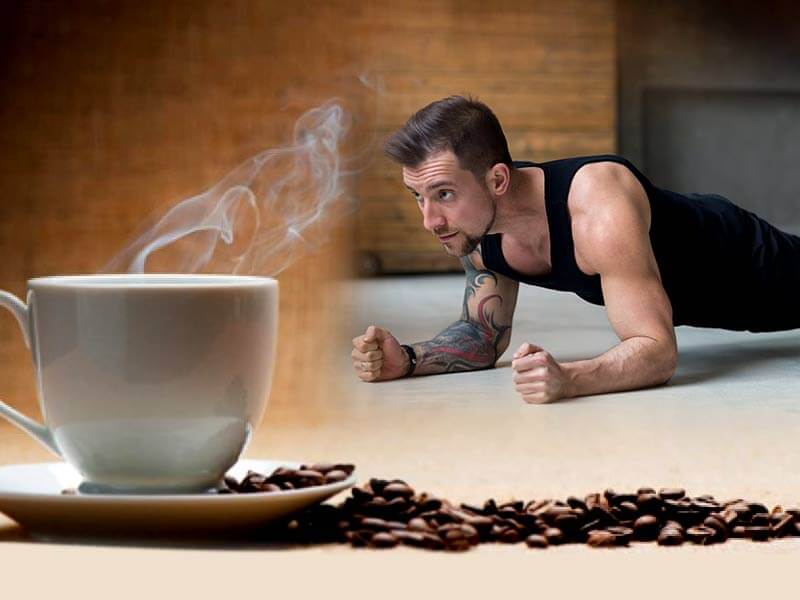 Coffee Mornings! Coffee Mornings! Days at home never start without a refreshing cup of coffee/chai. The smell of caffeine is good enough to enliven our energy levels and shake us off our sleepiness. Else most of us would be zombies moving around the house in half-sleep states! The logic behind brewing a fresh cup of coffee the first thing in the morning now makes utmost sense. Cheers to our earlier generation people who discovered this even before we coined the term ‘caffeine’. Coffee in the morning makes us feel better, feel good, much alert and wide awake. Has this really got something to do with a reaction happening in the brain or are we tricked into believing that caffeine helps us stay awake and energetic? Stimulating Sensation Caffeine stimulates the central nervous system (CNS) causing increased alertness and wakefulness. It also diminishes the effect of adenosine receptors thereby increasing the concentration of neurotransmitters such as serotonin, dopamine, acetylcholine and glutamate in the CNS. This increase eventually leads to wakefulness, alertness and energy. Adenosine receptors are primarily involved in negating the effect of these neurotransmitters. There are mounting evidences that uphold the fact that caffeine improves attention, alertness and mood, to a greater extent when we are tired. Some might choose to go with coffee while others grab a bottle of soda during their break. One cup of coffee contains around 80-100 milligrams of caffeine while soda has 30-60 milligrams. What about exercise? Does it have any positive effects on fighting off fatigue? If yes, its time again to debate upon the best of the two energy-producing activities-drink a caffeine-rich beverage or do small bouts of exercise? A very tiny study compared these two activities and came up with its result. The study included healthy but sleep-deprived individuals who were subjected to a dose of caffeine, stair-climbing exercise and placebo. Surprisingly, the research team found that 10 minutes of stair-climbing boosted energy levels far more than a cup of caffeine-rich (50 mg) beverage. Though a small-scale study (involved around 20 participants only), this provides us with a generalized opinion about the better of the two fatigue-fighting sources. This might be the starting point for further studies and research in this field down the lane. Yet another study went one step further and compared the benefits of exercise alone against the benefits of exercise with a dose of caffeine on cognitive tasks. Exercise along with caffeine intake proved to provide greater benefits than exercising alone. Results are not surprising as combining two instances of energy-rich actions rather than conforming to one always increases output. Normally caffeine takes around 30 minutes to start producing positive effects on the body and it is recommended to consume it some half an hour prior to workout for improved performance. Weighing the Pros & Cons Caffeine intake in coffee form is an often-debated topic and every other day we see some new piece of information about its advantages/disadvantage that make it difficult for the common man to judge. Proving to be beneficial in reducing the risk of certain types of dementia, cancer, high BP and diabetes caffeine also occupies the limelight for increasing the risk of bone loss, rheumatoid arthritis and making a person feel more nervous/anxious. How much of caffeine is too much? Check it out yourself at www.firsteatright.com. There are various studies that throw light over the benefits of exercising such as improved mood levels, cognition, fitness and function. Ageing population and those with dementia are shown to attain maximum benefit from exercising. Caffeine helps to boost alertness and energy levels for some time but the same is possible with some quick exercising too. Moreover, while caffeine has both pros and cons, exercising only has benefits attached to its kitty. With such clear evidences one can say without doubt that involving yourself in small bouts of exercise does you good than sticking to a cup of coffee in times of fatigue. Comments are closed.
|
AVOID FRAUD. EAT SMART.+91 7846 800 800
AuthorDietitian & Nutritionist Dr. Nafeesa Imteyaz. Archives
November 2022
Categories
All
Dr. Nafeesa's Blog @blogspot |
- Home
- Written Testimonials
- Consult
- Clinics
- Blogs
-
Diet & Nutrition
- Diabetes Reversal
- IVF IUI not needed for PCOS PCOD Infertility
-
Medical Nutrition
>
-
Disease & Conditions
>
- Infertility | PCOS
- Diabetes Mellitus
- Cholesterol
- Hypothyroid
- Kidney Problems
- Hypertension
- Cardiovascular Diseases
- Liver Diseases
- Gastro intestinal disorder
- Cancer
- Metabolic Disorders
- Orthopedic Disorders
- Eating Disorders
- Dietary Recall
- Weight Record Filled By Clients
- Online Payment Transaction Details
- Online Clients Weight Check Form
- Our Program Package Service Charges
- Weight Record 2017 Clients
- Measurements sent by Clients
- Terms & Conditions Of Payment
- Thanks. Your Form is Submitted
- Video Testimonials
- Lifestyle & Wellness
- Lifestyle & Wellness Blog
- Allergy & Intolerance
- Weight Loss / Gain
- Weight Loss / Slimming Blog
-
Disease & Conditions
>
- Life Cycle Nutrition >
- Sports Nutrition >
- Integrity in Nutrition
- Knowledge Centre
© COPYRIGHT 2022. ALL RIGHTS RESERVED. FRST HEALTHCARE PVT LTD.
Dr. Nafeesa Imteyaz of First Eat Right clinic, is the Best Dietitian Nutritionist in Bangalore. Best Dietitian Nutritionist in Pune. Best Dietitian Nutritionist in Hyderabad. Best Dietitian Nutritionist in Chennai. Best Dietitian Nutritionist in Mumbai. Best Dietitian Nutritionist in Delhi. Best Dietitian Nutritionist in Kolkata.


